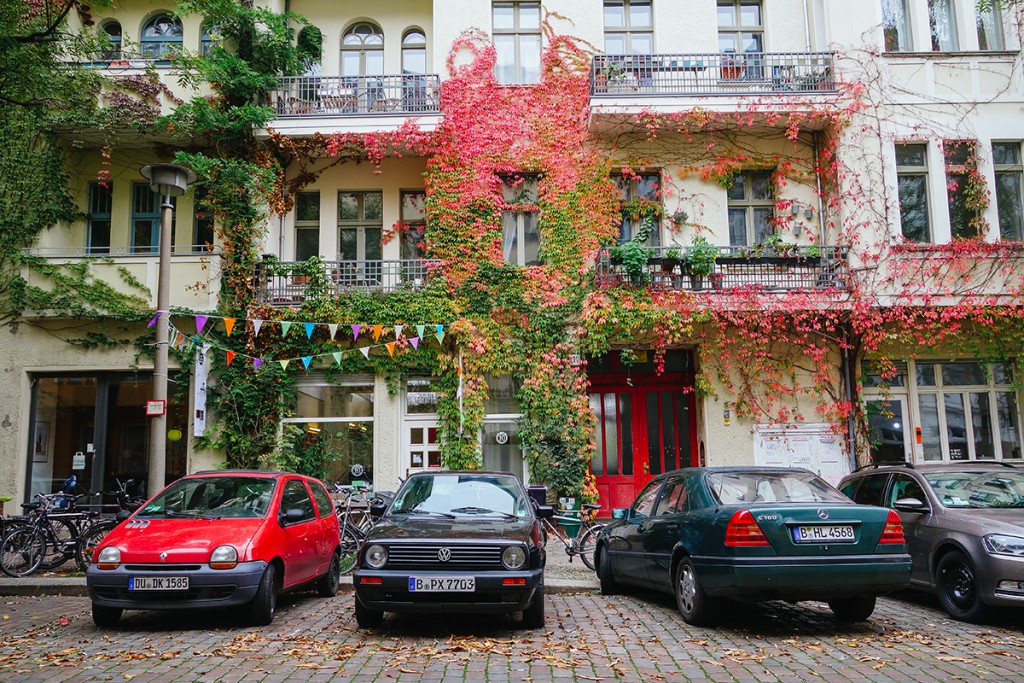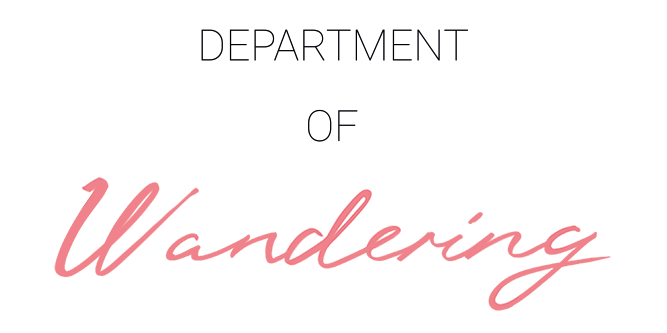
Making the actual decision to move abroad is one of the the hardest steps of the entire process. But it’s only when your plane has touched down in the new city you’re going to be calling home that the real adventure begins!
So what are the first things that should be on your expat to-do list?
10 items for for your expat to-do list once you’ve moved to Berlin:
1. Decide which neighbourhood you’d like to live in
Berlin is one of the biggest cities in Europe and as such, each neighbourhood is completely different to the next. A lot of families choose to live in Prenzlauer Berg, whereas students and young people generally tend to live in either Kreuzberg, Neukölln or Friedrichshain. Do your research and decide which neighbourhood suits your lifestyle and interests best.
2. Find somewhere to live
Once you’ve decided on which neighbourhood you’d like to live in, it’s time to hunt for a flat. The housing market in Berlin is very competitive and finding a flat can be notoriously difficult, especially when you are competing against German-speaking locals. Having all of your paperwork organised as well as a bit of persistence should result in finding an apartment eventually.
Firstly, you need to decide whether you want to rent an unfurnished or furnished flat. Expats who are moving for shorter periods tend to prefer renting fully-furnished apartments and can find these through sites like Crocodilian, Home Company or even AirBnB (read about my AirBnb love affair here and claim a discount off your first stay!). If you plan on staying for a longer period, you might want to furnish your own flat. In this case, search for a place on Immobilienscout24, Immonet, Immowelt. Another great option is to sub-let and you can search for these apartments on WG Gesucht.

3. Register your address
By law you are supposed to register your address at the Bürgeramt within 14 days of moving in. In German this is called ‘Anmeldung’. This process is very important for expats because without doing so, you can’t apply for a visa, open a bank account, enrol in University, register for German health insurance, among many other essential things. Book an appointment online and find out what you need to bring with you here.
4. Book your visa appointment
Non-EU nationals need a visa if you plan on staying in Germany longer than 90 days.
5. Open a bank account
As soon as you’ve registered your address and have your official, stamped piece of paper, it’s time to open a bank account. There are lots of different banks to choose from in Berlin, but the most popular tend to be Deutsche Bank, Commerzbank and Sparkasse.
6. Sort out your health insurance
It is mandatory to have health insurance in Germany. Unfortunately, it is very expensive, although it does come with a lot of benefits. At your visa appointment, you will need to show evidence of insurance. German health insurance is complicated and many people hire an insurance broker to help find the most suitable policy for their individual needs, as policies vary widely. The most common German health insurance providers are TK (who I’m with), Barmer GEK and AOK. If you are employed, the good news is that your employer will cover half of your monthly insurance contributions. If you are a freelancer, you need to cover the full amount on your own. What you pay is determined by how much you earn, but in general, premiums are around 15 % of your total income.
7. Start German lessons
One of the most important aspects of the expat experience is learning the local language and you’re never going to be able to fully appreciate your new home if you don’t speak the language. In fact, refusing to learn the language kind of defeats the purpose of moving in the first place! For these reasons, book a German course as soon as possible to learn the basics. When I first arrived, I signed up for two months of intensive German classes with DeutschAkademie. Classes ran for three hours per day, four days per week at a very reasonable cost of € 205. Other popular courses include those through Expath and the German Language School.
Related:
8. Look for a job
If you can speak German you have a huge advantage in the job market in Berlin. Unfortunately, most jobs require proficiency in German, which is all the more reason to get your German skills up to scratch! If they’re not quite there yet though, don’t worry. There are still lots of options. One of the best options for expats is a job at a start-up as you’re less likely to need a high level of German in this situation. Other places to look for English-speaking jobs include the job boards on ExBerliner, Berlin Expat Jobs and Toytown Germany.
9. Get connected
Now that you’ve registered your address, (hopefully) found a flat and have opened a bank account, it’s time to connect your mobile phone. You can either sign up for a contract or buy a prepaid SIM and top-up on the go (what I do). Some of the most popular providers are O2, Vodafone and Deutsche Telekom.
10. Enjoy Berlin!
Now you’ve got the most important things on your expat to-do list ticked off, it’s time to get out and enjoy Berlin! The best thing about living abroad is that you LIVE abroad. You don’t feel rushed to get around and see everything in only a couple of days. Take your time, explore, eat and discover the city naturally.

Interested on reading more on life in Berlin? Check out:
- The ULTIMATE Berlin Bucket List: 101 Things To Do
- Craving Healthy Food in Berlin? Here’s Where To Get It
- What is the Cost of Living in Berlin? My Berlin Budget Breakdown




It’s a great article very well researched! I thought that the Anmeldung had to be done within 7 days which caused me a bit of stress but that’s good to know for next time! I would recommend Aldi Talk as a phone provider as it really cheap! x
Thanks Anne-Laure. No, it’s 14 days and then there’s always some flexibility with this too because of how difficult it can be to make an appointment! Thanks for the phone provider recommendation too. I didn’t know about them! x
Thank you so much for your useful info, Rachel! I’m a Japanese and I’m going to Berlin using working holiday system this September. I’m exciting to living abroad pretty soon while I’m afraid of governmental work in Germany…
Your information helped me a lot to know what I have to do there. Thank you so much.
So glad it was helpful to you, Ayu! The working holiday visa is a great option — I used this when I first arrived too. Good luck and have a great adventure living in Berlin! 🙂
Hey Rachel,
I have another question for you regarding health insurance. I paid for health insurance to cover me for a year in Europe, but this was done here in Australia - which I thought would cover me with my working holiday visa. Is this what you mean by health insurance in Germany? Or is this on top of the already health insurance I’ve purchased? hope that makes sense, I’ve managed to book in for my residence permit appointment and visa appointment a week later so want to make sure I have everything ready!
Thanks for your help 🙂
To Point 5. “Open a bank account”. You right the three banks you named are very popular but not ethical. If you want that your money is in good hands, i recommend a value based Bank like the GLS Bank, Ethikbank or Umwelt Bank. The GLS Bank is also member of the “GABV - Global alliance for Banking on values”. The Global Alliance for Banking on Values is an independent network of banks using finance to deliver sustainable economic, social and environmental development.
So please, i f you need a bank account and want to change the world to a better place take an ethical bank.
Cheers Werner
Nice summary Rachel. Especially number 10 ! 🙂 I have created a blog in 2011 which aims at exploring all those topics (& more) in depth for people moving to Berlin & Germany with special tips as well. Maybe the readers of this blog will find it relevant ?
http://www.settle-in-berlin.com/
It sounds like your blog would be super helpful for those considering the move to Berlin, Bastien. Thanks for sharing!
Really great post! I am planning to move to Berlin in August and I am very excited about this. I have visited the city three times and I am totally in love with it. I work as a freelancer and I hope that I will manage to make enough money in order live good there. Thank you for the awesome tips!
That’s just too exciting Jeanette! It’s great you’ve already been to Berlin a couple of times before so you already have a feel for the city. What kind of work do you do? Freelance work can be tough in Berlin but I hope you do really well! All the best! 🙂
Yes, indeed! My freelance job includes editing and manipulating photos for websites and commercials. I work with clients from all over the world. In Berlin I will probably live with roommates so we can split the rent and party together. 🙂 I think that it will be great! 🙂
Sounds fabulous! So great that you already have clients — it will make things a lot easier! You’ll have such an amazing experience. Have fun! x